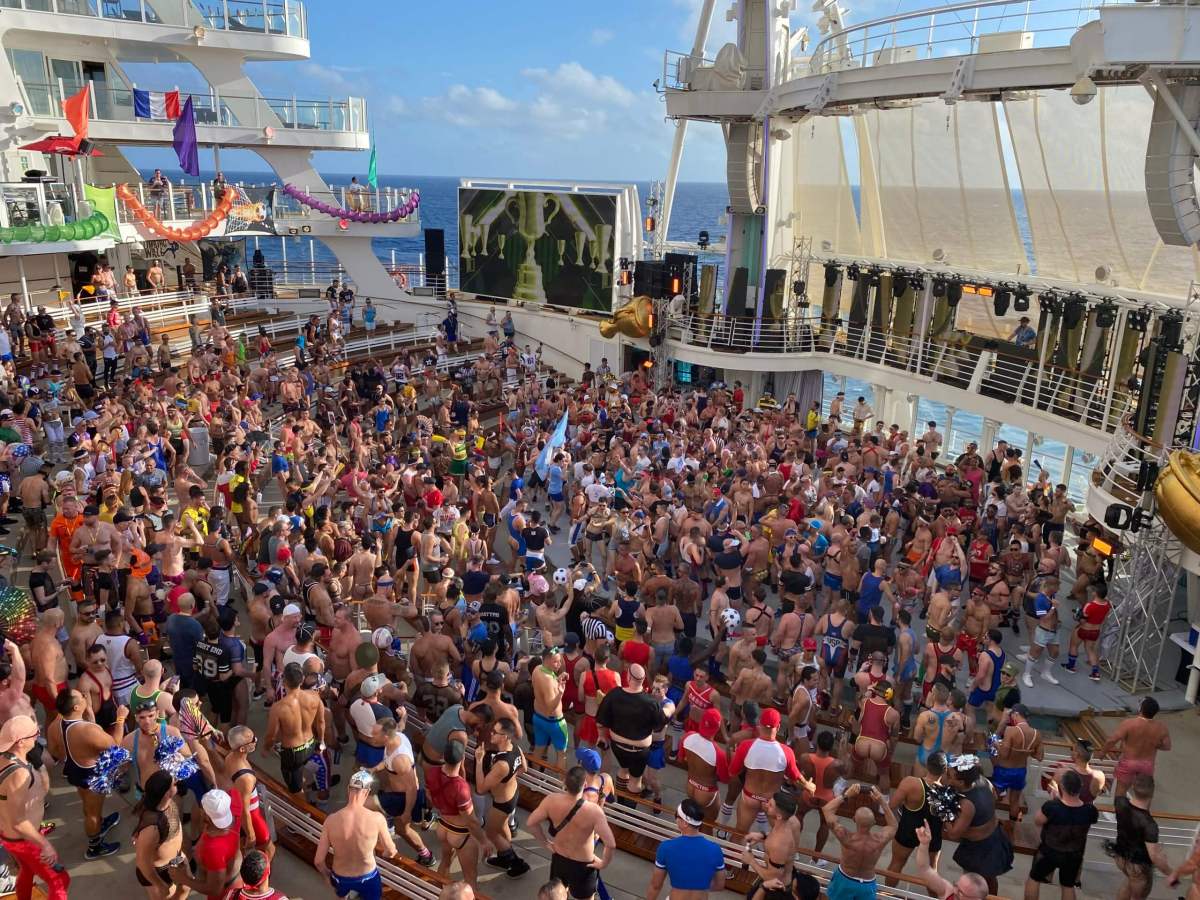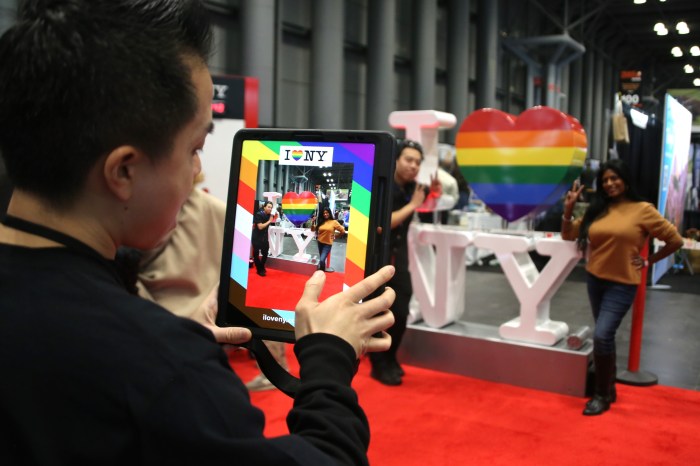Atlantis Events, which produces LGBTQ cruises and vacations, received searing criticism for hosting the largest pandemic-era cruise event for its sold-out 30th-anniversary voyage — even as omicron spread like wildfire across the country. It earned the Royal Caribbean cruise ship, Oasis of the Sea, the name “Omicron of the Seas” on social media.
Atlantis set sail from Miami to the Caribbean on January 16 and returned on January 23. VACAYA, meanwhile, departed Fort Lauderdale a week earlier, January 10-17.
The death of an unidentified passenger aboard Atlantis on the second day out at sea on January 17 only raised more questions in the media about safety.
Royal Caribbean confirmed the death of the passenger aboard the Atlantis cruise, first tweeted by Chris Wiggins, a gay freelance journalist. Wiggins tweeted reports of multiple “code alpha” emergency calls aboard the ship during the cruise, sources told him.
“We are saddened by the death of one of our guests aboard Oasis of the Seas. Our heartfelt condolences go out to the family. We are fully cooperating with all parties involved in this tragic situation,” wrote Miraya Vargas, a member of Royal Caribbean’s corporate communications team, in an email to Gay City News.
Cruise Law News reported at least five deaths in the past decade aboard Atlantis cruises, not including this month’s death. Among the fatalities, a technical crew member went overboard a year ago, and in 2018, reality star Joel Taylor died of a suspected overdose.
Vargas did not identify the passengers or the cause of death, nor did she confirm the amount of COVID-19 transmission aboard the cruise.
Both ships were code yellow on the CDC’s COVID-19 list for cruise ships. The Oasis of the Sea and the Millennium both met the threshold for CDC investigations for reported COVID-19 cases on the ships for weeks prior to sailing in this month, yet were allowed to continue to sail.
Longtime Atlantis cruiser Ron Davis, who was aboard the ship and was quoted in a New York Times article that questioned whether a gay cruise could keep 4,700 passengers safe, told Gay City News the captain announced that only five cases out of the more than 4,000 passengers were reported aboard the cruise at the end of the trip. VACAYA reported 27 cases out of nearly 2,000 guests and, in a statement on January 27, fired back at the New York Times article.
VACAYA co-founders Randle Roper, CEO, and Patrick Gunn, CMO, called the low transmission rates proof that following COVID-19 health and safety protocols work: masking, social distancing, testing, vaccination, and reduced capacity. They declared LGBTQ travel companies and cruises can keep travelers relatively safe at sea.
Atlantis did not respond Gay City News’ multiple requests for comment.
The criticism of the Times was just as sharp as that of Atlantis setting sail with thousands of gay men during the omicron surge. Gunn said the community was described in “stereotypical ways” and said it amounted to “unacceptable prejudice.”
“I hate the presumption that people, when they hear gay cruise, they assume it’s just this big floating bathhouse,” Davis said, noting staff talked about a swinger cruise, Bliss Cruise, that sailed in November 2021 but did not garner the same media attention. “I hate that stigma so much.”
Gunn wouldn’t comment on Atlantis specifically. The Times reporter, Ceylan Yeginsu, did not respond to a request for comment.
Images captured aboard the Atlantis ship of hunky, unmasked men in chaps, tightly packed together in what looked like a pre-COVID-19-like scene on the ship’s outdoor Aqua Theater, were pretty accurate, Davis said. The photos quickly went viral on social media.
With Atlantis and Royal Caribbean’s COVID-19 safety protocols, which included pre-boarding testing and masking in place, Davis said he felt safer aboard the ship than in an airplane or bar. Those who tested positive pre-boarding for both Atlantis and VACAYA’s cruises were not allowed to board, Davis and VACAYA’s founders said.
In addition to the safety protocols, VACAYA and Celebrity worked to together to meet guests’ comfort levels in an effort to keep COVID-19 transmission rates low. Guests had the option to watch live shows in the theater simultaneously on a big screen on the top deck of the ship.
The CDC loosened restrictions on cruise lines on January 15. The revised guidelines came 18 days after Dr. Anthony Fauci issued a strict travel advisory telling all travelers to avoid cruises in the face of the highly infectious omicron variant.
Many travelers reconsidered their cruise vacations, but Atlantis only had 35 cancellations out of 2,700 rooms since January 1, Rich Campbell, chief executive officer of the gay travel company, told the Times.
VACAYA’s cruise was sold out, with only a few cancelations, but Gunn didn’t specify the number.
Reduced COVID-19 transmission rates on their cruise gave VACAYA the courage to sail forward this year, unlike some LGBTQ travel and cruise companies that canceled some trips or only have cruises sailing during the second half of 2022.
Royal Caribbean canceled some cruises out of caution due to COVID-19. Lesbian travel company Olivia scheduled cruises for the second half of 2022. Smaller cruises, like Viking, are going to require booster shots to board starting March 1.
Like VACAYA, R Family Vacations also has several cruises scheduled to sail this spring through the fall.
“All of our trips are moving forward,” Gunn said stating the company’s leadership is “quite bullish” on the issue. They believe they’ve answered the question that they can “travel guests safely.”
“Cruising will continue to rebound,” he said.
Olivia and R Family Vacations did not respond to Gay City News’ request for comment.
































